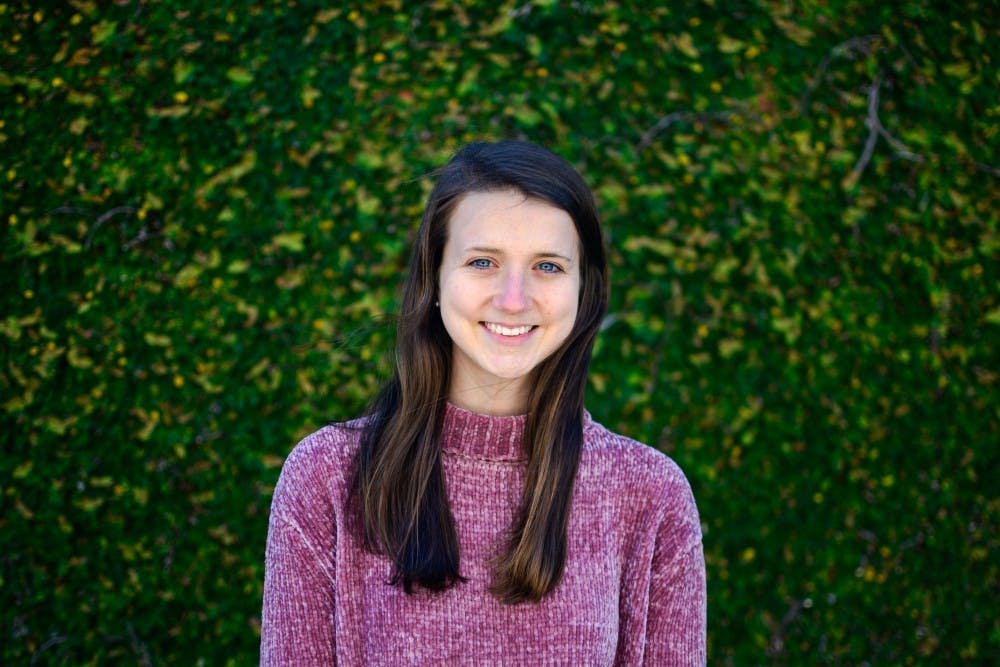Gangliosidosis-1 is a rare, genetic disorder that has impacted multiple families, including Auburn senior Cassie Bebout. When she was 6 years old, the disorder took the life of her 9-year-old brother, and since, she has made it her mission to find a cure for the disorder.
“It is more lethal in kids,’ Bebout said. “The disease has a bunch of neurological and physical manifestations, but the neurological problems are the most fatal.”
Originally from Denton, North Carolina, Bebout came to Auburn because she was interested in the research for GM1 that Auburn offered.
Bebout said she did her best to stay involved and updated about the disorder even before her time on The Plains. She friended people on Facebook who shared similar experiences with GM1 as her and her family.
One of the people she was following shared an article about the research Auburn was doing, which sparked her interest during her junior year of high school.
“I read about it, and it really just clicked with me,” she said. “I was like, ‘Wow. I really want to help out with this.’”
She was so eager to get involved that she got in contact with the researchers, who gave her the opportunity to work at the lab for a few weeks the summer before her senior year of high school.
“I absolutely loved it,” Bebout said. “I worked about 40 hours a week while I was there. I was doing anything they needed me to do, and I just loved every second of it.”
When she came to Auburn, the researchers hired her, and she has been working 20 hours a week since then.
“I’m doing this research because I’m super passionate about finding a cure for lysosomal storage diseases,” Bebout said. “I’ve seen what it looks like first hand, and I’ve seen the toll it can take on families and on the child themselves. I think this gene therapy can be the gateway to help with these disorders and maybe even help with more common disorders.”
In her current work, Bebout mostly does peripheral disease analysis in the lab.
“What that means is that I pretty much look at storage products throughout anything that is not the brain, but I’m also looking at a bit of neurological disease,” Bebout said. “I also look at biomarkers of the disease progression or treatment success.”
Bebout is highly involved in raising money and awareness for GM1 disease outside of the lab and has been for a long time.
In her senior year of high school, Bebout ran a 5K and used all the proceeds to go toward raising money for GM1 research.
For the past three years, Bebout has also volunteered with the National Tay-Sachs & Allied Diseases Association Conference.
Bebout said families, patients, doctors and researchers attend this conference as a way to come together to give a current state of affairs with the research that is being done for GM1.
“You get to meet other families that have the disease or are dealing with the disease,” Bebout said. “I help take care of the patients and the siblings. I really do a lot with the siblings especially so I can console them if they are grieving or don’t know what to do with the death of a sibling or telling their friends that their sibling is sick.”
In addition to her work at the conference, she also presents some of her own research.
After graduation, Bebout plans to attend medical school at West Virginia University. She will be part of the MD-PhD program, meaning she will get both a medical degree and doctorate and go on to be a physician scientist.
“With that, I hope to be a pediatrician, and I want to specialize in lysosomal storage disorders, which is what GM1 is,” she said. “There are so many lysosomal storage disorders, and there’s not a lot of research going on for those right now.”
Bebout is happy that articles are going around about GM1 research because it is helping more people learn about GM1 disease and helping people be more aware of it.
“Making more people aware that these kinds of diseases do exist and getting more people curious about it is so important,” Bebout said. “As a whole, lysosomal storage diseases are a lot more common than you would think. It’s about one in 3,000 births, so, as a whole, they are not that rare. I want people to know more about this disease, and maybe they will be motivated to donate for GM1 research.”
Do you like this story? The Plainsman doesn't accept money from tuition or student fees, and we don't charge a subscription fee. But you can donate to support The Plainsman.





